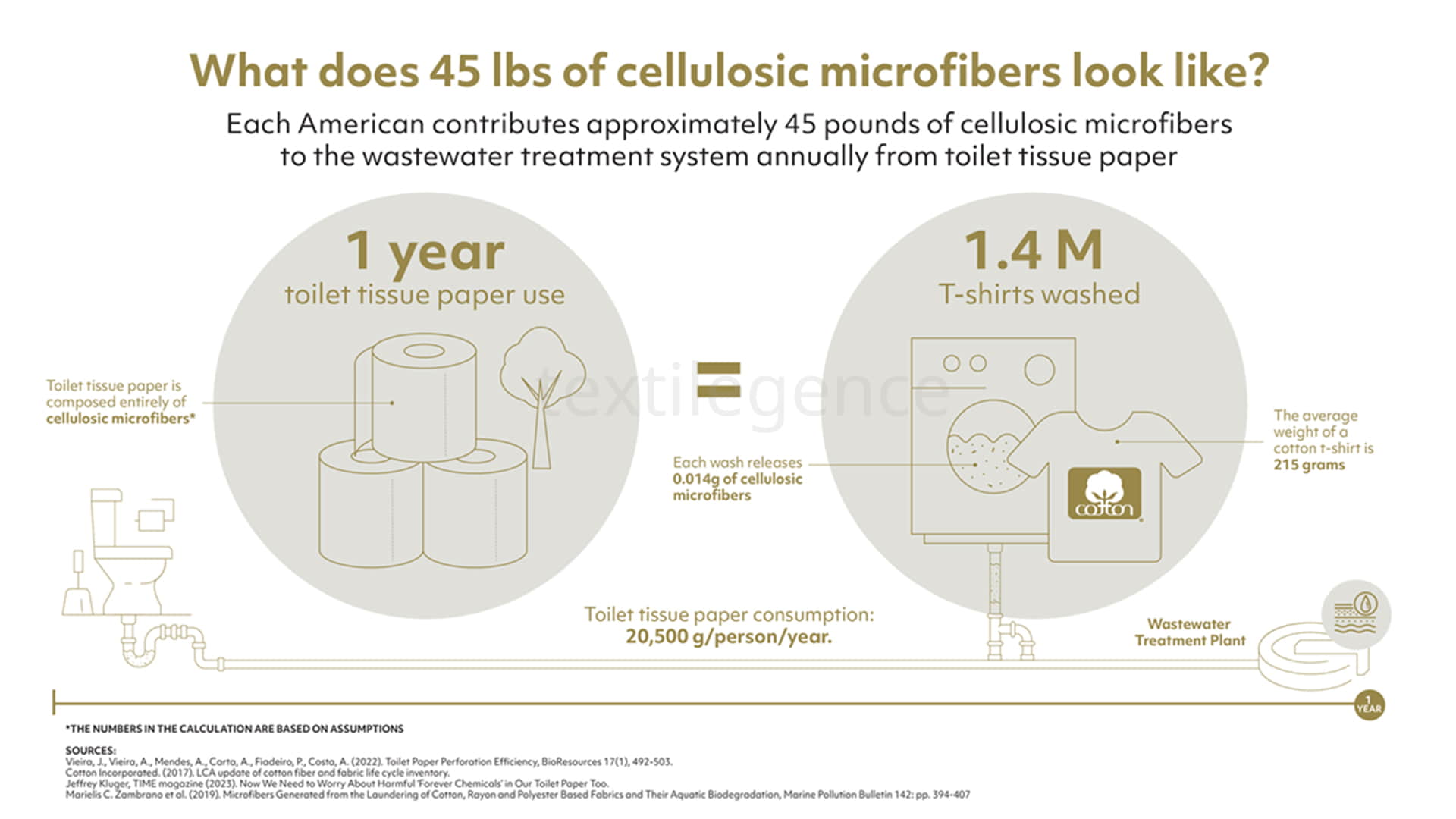New research from North Carolina State University and Cotton Incorporated provides important insights to the biodegradability of cellulosic microfibers. According to this, laundered cotton microfibers break down faster than cellulosic microfibers from toilet tissue in wastewater treatment, fresh water, and saltwater environments. Further, microfibers from synthetic materials did not readily biodegrade and were persistent after the testing periods in all environments tested. The researchers showed that cellulosic microfibers from flushable wipes, tissue paper, and cotton fibers generated from bleached cotton jersey knit fabric biodegraded extensively across all tested conditions.
Annual toilet tissue use causes the same microfiber emissions as 1.4 million t-shirts washed
Cotton Incorporated Vice President and Chief Sustainability Officer Ph.D. Jesse Daystar said; “Since toilet tissue microfibers enter the wastewater treatment system at a rate of 45 pounds per year per person in the United States, they are one of the most significant contributors to cellulosic microfibers,” pointing out that the annual microfiber emissions from toilet paper use in the United States equals the microfiber shedding from washing 1.4 million T-shirts. Daystar stated that their research confirms cotton microfibers biodegrade equal to or faster than toilet tissue microfibers in wastewater treatment, fresh water and saltwater environments, demonstrating society’s and nature’s ability to manage them.

The study also found that the presence of polypropylene in blended nonwoven wipes did not hinder the biodegradation of the cellulose component. This suggests that even when combined in a single product, the cellulosic component can still degrade independently, while the polypropylene remains undegraded.
Cotton Incorporated Vice President of Product Development and Implementation Operations Mary Ankeny noted that these results reaffirm that fibers found in these cellulosic and cotton-based products can biodegrade easily in various environments, disclosing: “Our research highlights the importance of choosing natural fibers over synthetic alternatives to reduce the accumulation of non-biodegradable waste in our environment in order to promote a more sustainable future.”
This research studied the biodegradation of cotton microfibers, commercially available flushable wipes, polypropylene-based nonwoven wipes with a cellulose component, and toilet tissue. The biodegradation was tested in wastewater treatment plant solids, seawater, and lake water using standard methods in an ECHO respirometer. The experiments continued until carbon dioxide (CO2) emissions plateaued, and the final extent of biodegradation was calculated based on the theoretical CO2 production derived from elemental analysis.
